Aurat March: The act of taking space is both tactic and victory
It is heartening to see both institutions and political parties supporting the Aurat Match

From women’s suffrage in the early years to equal rights, economic, social and cultural justice, reproductive freedom, bodily autonomy, and many other issues over the years, IWD has been a call to action for women around the world.
Aurat March has carried on that tradition, rescuing International Women’s Day in Pakistan from the capitalist clutches of lawn sales, restaurants and corporates, and restoring its purpose. In Pakistan, while civil society organisations had continued to use 8th March to raise awareness of gender inequality, the mainstream understanding of the Day had been reduced to wishing women a ‘happy women’s day’ with flowers and gifts - most ironically epitomised by workplaces that exploit women the entire year gifting them chocolates for IWD. '
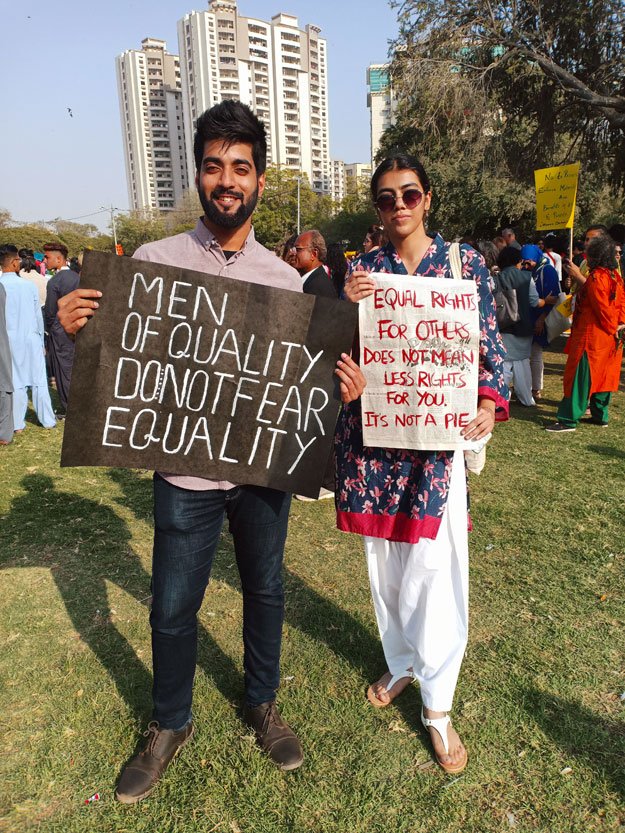
Aurat March has taken control of International Women’s Day and given it back to women. It has become a rising cry against all kinds of injustice faced not just by women, but by all those who are othered and discriminated against by society, whether that is religious minorities, home workers or transgender people. Maybe it is that which is so threatening about groups of women peacefully carrying placards - the rising up and standing together of all those whose subjugation those in power benefit from.
After Aurat March 2019 the organisers received death threats on their social media accounts, the Khyber-Pakhtunkhwa Assembly passed a resolution against the March, and a complaint was filed about the ‘vulgarity’ of the March. This year so far the organisers have been targeted with rape and death threats on a poster calling for volunteers, at least two petitions have been filed against the March, in Lahore High Court and Sindh High Court respectively, and posters advertising the March were torn down less than an hour after being being put up.
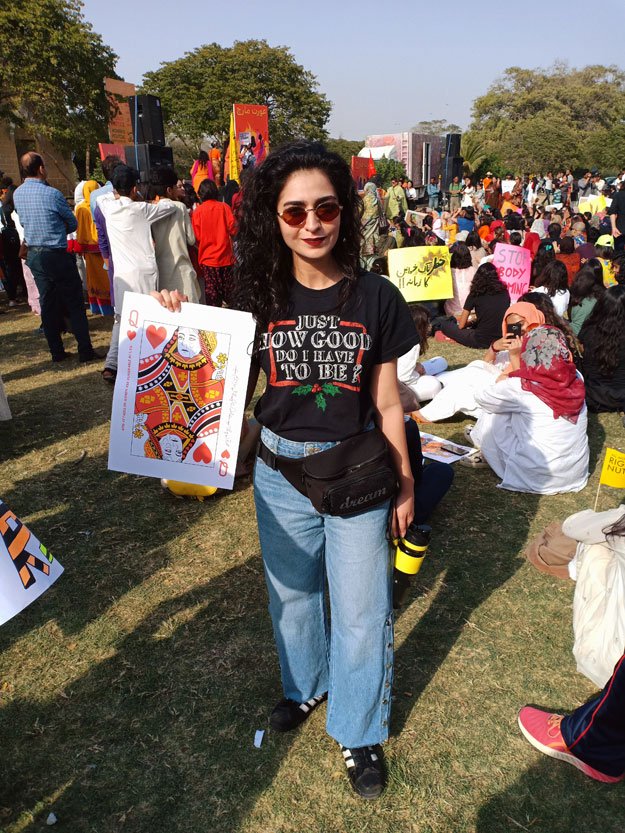
It has, however, been heartening, and feels like a sign of progress, to see both institutions and political parties standing for the rights of women to exercise their right to demonstrate. The Courts denied the petition against the March and senior members of ruling political parties - Shireen Mazari from PTI and Sherry Rehman from PPP - have both come out to publicly support Aurat March and to condemn threats against it.
Support has also come from the public with women and men both speaking out against threats to the organisers and in favour of the event - including this eloquent and powerful spoken-word piece.
The act of taking up space, physical and political is both a tactic and a victory for the Aurat March. In a society where women are still largely relegated to and associated with the private sphere (while at the same time bearing much of the economic and caring responsibilities for their families), where streets and public spaces are owned and occupied by men, where politics is not deemed an appropriate place for women, just the existence and occurrence of Aurat March is radical.
Credit must also be given to the organisers of the movement for their endeavors in trying to make the march as inclusive as possible, recognising the many hierarchies of power that exist within Pakistani society. They carry out consciousness-raising activities in all kinds of spaces with women from all backgrounds and have been conscious and deliberate in putting the rights of Pakistan's transgender community at the forefront of their activities.
Read: Here’s ‘Why we don’t need Aurat March’
In this way, they seem to be listening to varied experiences of inequality and oppression, and amplifying - rather than speaking for - these diverse voices. The value of the conversations Aurat March provokes - whether purposefully and carefully in these spaces or as a byproduct of the backlash - cannot be underestimated.
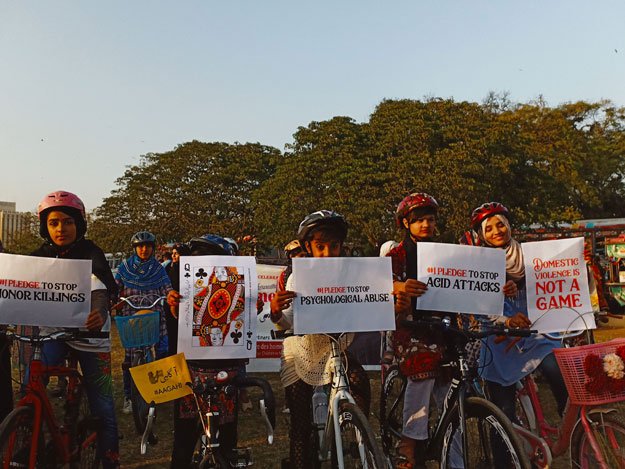
This does not absolve Aurat March from all critique of being the upper-class woman’s day out - a criticism often levelled at it - but the reality is more complex and more nuanced than that. Within this particular criticism is also an inherent assumption that only women of a certain class want to advocate for their rights or raise their voices.
This takes away the agency of all those women, transgender and non-binary people from all strata of society - the home-workers, the farmers, the craftswomen, the health workers, and many more - who live these oppressions daily. Of course there is an inherent privilege present in being able to safely attend something like the Aurat March but it is obvious that the organisers are mindful of that and it does not render the March void. In fact, it creates a stronger case for it.
There are many reasons why the Aurat March is important politically, socially and culturally. There are many aspects to be discussed about its impact. But regardless of its wider social influence and implications, for me the most important function it carries out will always be what it does for individual women and what the experience will mean to them - to us.
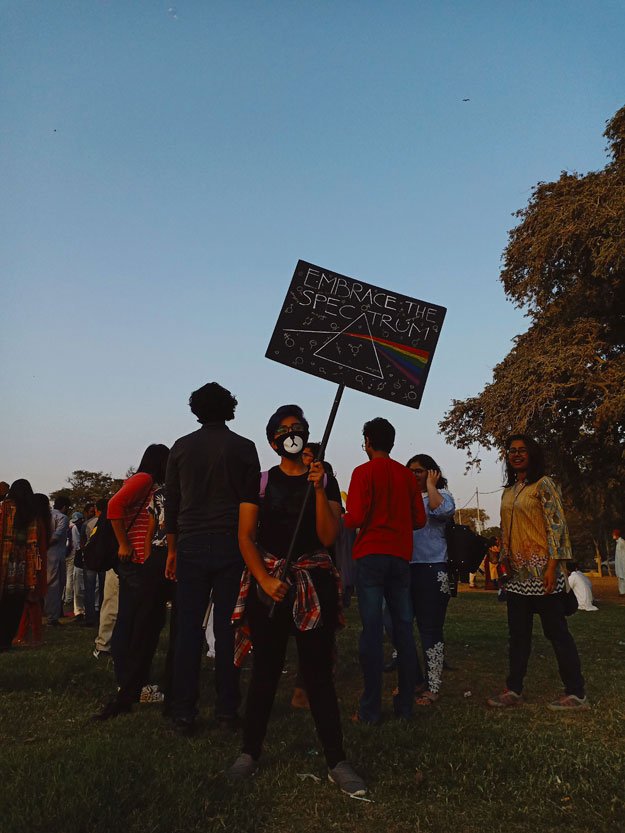
Every woman on that march will have her own reason for being there. Some of us will be there because we are sick of always looking over our shoulders as we walk down the street, others will be there because we have had enough of being taught how to not get raped while the message to not rape is never drilled into men.
Some of us will be there because we are fired when we are pregnant and judged when we are not. Others will be there because we are harassed at work but unable to say something because it’s the only way to survive. Some of us will be survivors of rape, of domestic abuse, of sexual harassment, of discrimination, of poverty, of so many forms of inequality in so many different ways. And those of us who aren’t there will look on in the knowledge that the women there are speaking for all of us even as they speak for themselves.
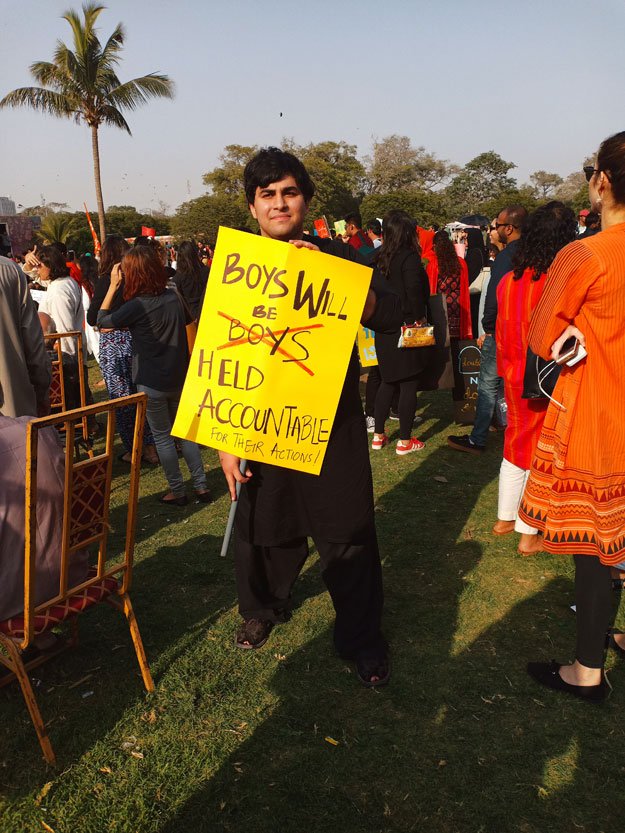
There is great power in speaking out, in standing together, in forming collective narratives out of individual experiences. It is how healing begins to happen and it is how change is sparked. If nothing else, that is enough to make Aurat March one of the most important moments of the year.
Zaimal Azad has completed her MSc in Gender, Policy and Inequalities from London School of Economics. She currently works in the hate crime field in the UK. She tweets @ZaimalA
Have something to add to the story? Share it in the comments below.



















COMMENTS
Comments are moderated and generally will be posted if they are on-topic and not abusive.
For more information, please see our Comments FAQ